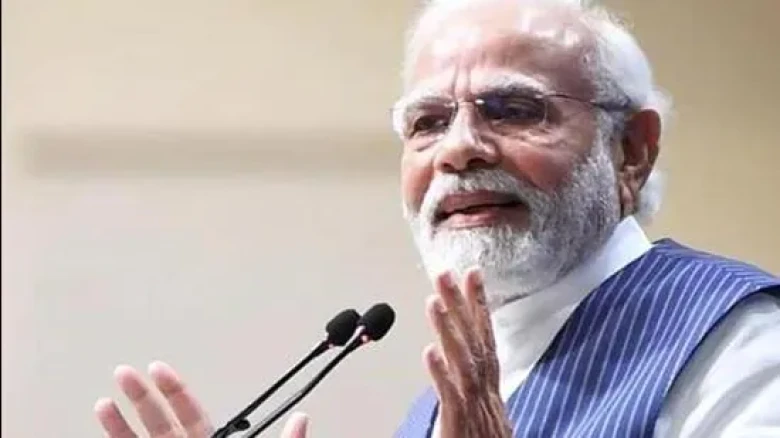According to Modi, private actors are now opening up a new universe for the younger generation in fields like space technology, where previously only the government used to handle things. He claimed that previously male-dominated industries are increasingly highlighting the talent of women.
Digital Desk: The British-created educational system, according to Prime Minister Narendra Modi, was never a part of the Indian character, but the National Education Policy (NEP) has "given us a tool to achieve limitless potential," he said on Thursday.
He added that the fundamental tenet of NEP is to expand education beyond the confines of constrained intellectual processes and to incorporate it with cutting-edge 21st-century concepts.
He made his remarks following the inauguration of the Akhil Bharatiya Shiksha Samagam on Thursday in Varanasi, which was attended by the governor of Uttar Pradesh, Anandiben Patel, and the chief minister, Yogi Adityanath.
State ministers, educators, and other participants were also present at the event, along with Union ministers Dharmendra Pradhan, Annapurna Devi, Subhas Sarkar, and Rajkumar Ranjan Singh.
The University Grants Commission (UGC), Banaras Hindu University, and the Ministry of Education are working together to host the Akhil Bharatiya Shiksha Samagam from July 5 to 9.
According to Modi, the nation has always had enough skill and intelligence.
While pointing out that the British provided the nation with an educational system to develop a "servant class" to satiate their own demands, he emphasised the diversity of the Indian educational philosophy.
"We simply do not have to train young people with degrees; it is essential that, along with it, our educational policies also contribute to the nation while preparing substantial human resources needed to move the country ahead." This resolve needs to be led by our academic institutions and instructors, he said.
The Prime Minister emphasised the importance of a new system and cutting-edge procedures for building a "New India."
What was previously unimaginable is now a reality, he claimed.
"Not only did we recover from the massive Corona outbreak so quickly, but India is currently one of the largest economies in the world with the quickest growth rates." We currently have the third-largest startup ecosystem globally, he continued.
According to Modi, private actors are now opening up a new universe for the younger generation in fields like space technology, where previously only the government used to handle things. He claimed that previously male-dominated industries are increasingly highlighting the talent of women.
The new policy places a strong emphasis on educating kids in accordance with their interests and talents.
"Our young people should be knowledgeable, self-assured, practical, and analytical. He claimed this was being set up by education policy.
The Prime Minister emphasised the importance of developing new ways of thinking as we strive toward the future.
Children nowadays are showing a very high level of talent, he claimed, and "we need to be ready to nurture and harness their talent."
Modi praised the work that went into creating the NEP and emphasised that momentum continued even after the policy was created.
According to him, the country's children are increasingly playing a vital role in the development of the nation.
Modi also mentioned a significant upgrade to the nation's educational system. Numerous new IITs, IIMs, colleges, and institutions are opening. He claimed that there were 55% more medical colleges after 2014 than before.He continued by saying that the Common Entrance Test for Institutions would make admissions to universities simple and equal.
Studies in the mother tongue are now possible thanks to the National Education Policy. He added that Sanskrit and other old Indian languages are also being carried on in this sequence.
The Prime Minister expressed optimism that India may become a significant hub for international education. He said that instructions had been released to bring Indian higher education up to par with foreign norms. 180 universities now have specialised offices set up for their foreign activities. He urged specialists to be knowledgeable about regional and global standards.
Fieldwork and practical experience were stressed by Modi. He requested a "lab to land" mentality.
Additionally, he requested studies on how to best utilise India's demographic dividend and identify solutions for the world's ageing nations.
"National Education Policy has provided us with a tool to achieve countless opportunities that weren't before possible. We must make the most of it, he said.
Eminent academics, policymakers, and academic leaders will have a forum to deliberate, exchange their experiences, and discuss the NEP-2020 implementation roadmap during the three days of the Shiksha Samagam.

Leave A Comment